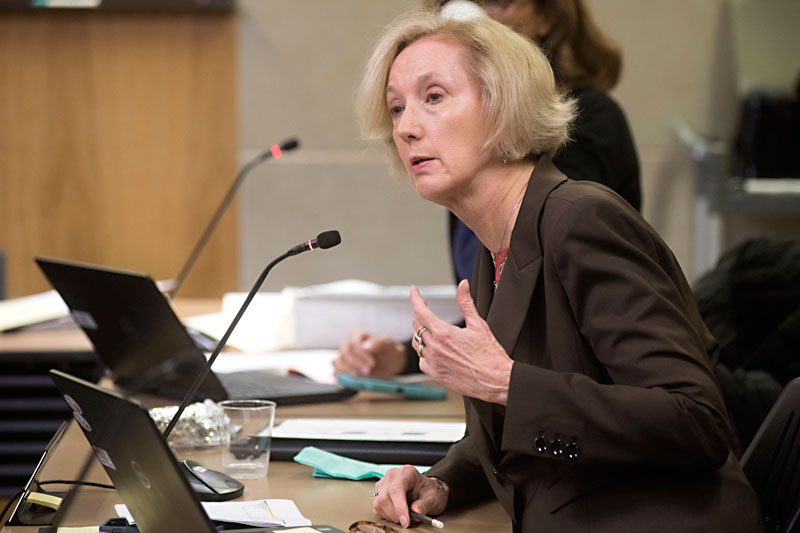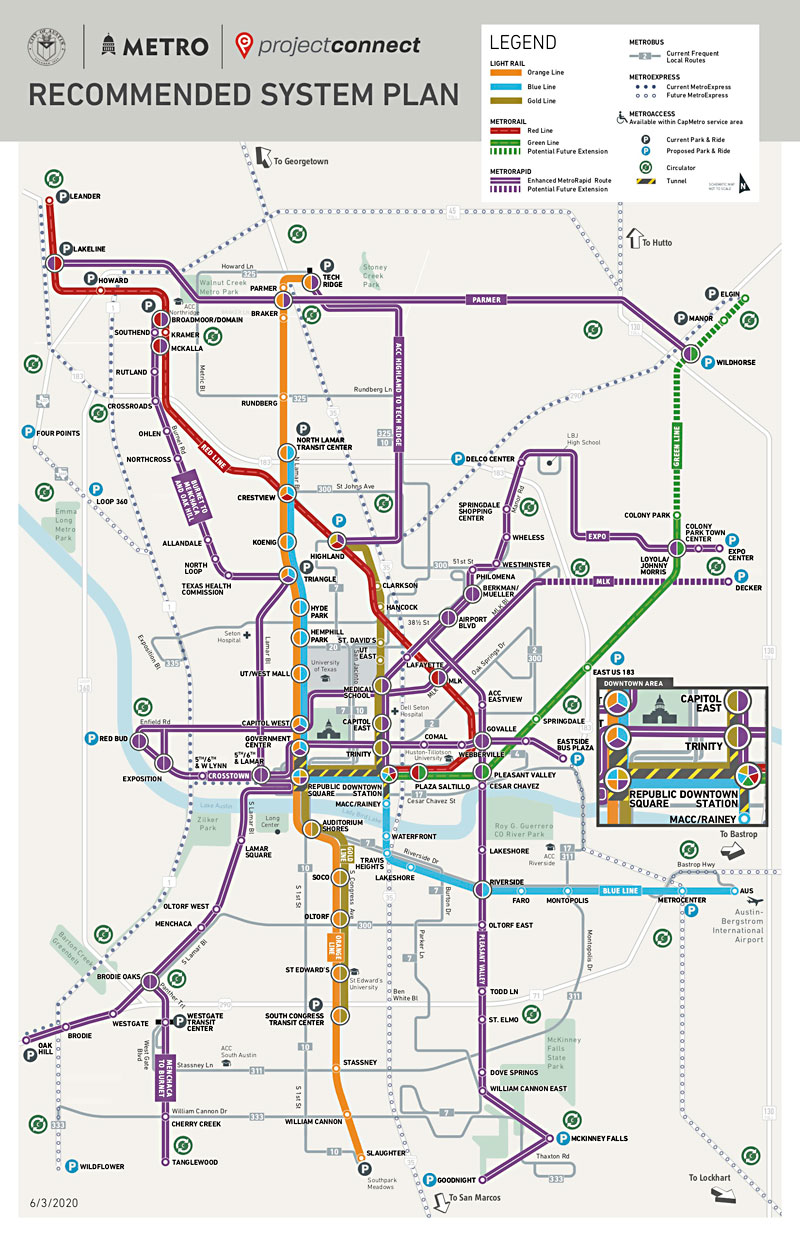Meet the Emerging Opposition to Project Connect
Not on board
By Nataleah Small, Fri., June 19, 2020
The Austin City Council and Capital Metro board of directors voted unanimously on June 10 to adopt the Project Connect transit system plan, including three light rail lines, a Downtown tunnel, new commuter rail and express bus service, and 24 new park-and-ride hubs. Austinites will be able to vote on the plan as soon as November; the city will presumably call that election in August, when it proposes a local funding mechanism – likely an earmarked property tax, requiring voter approval – for our share of the $9.8 billion plan (the rest will come from federal dollars).
Although city and Cap Metro leaders tout the broad support and extensive outreach behind Project Connect – as embodied in the Transit for Austin coalition – not everyone in the city is fully on board. Our Mobility Our Future, a coalition of "Austinites, taxpayers, business owners and transportation nerds," according to the group's website, has filed the paperwork as a political action committee that will raise and spend money to defeat whatever is on the ballot. (Blast from Austin's political past Jo Baylor, a onetime GOP legislative candidate and Bush 43 appointee, is campaign treasurer.) "We're just a group of Austin citizens who believe our mobility is too important to get wrong," said OMOF spokesperson Tori Moreland.
The coalition is not a membership-driven organization, said Moreland, so there's no telling how many people are affiliated with OMOF. (As of June 16, it has 18 followers on Twitter.) "We're worried about costs, we're worried about displacement, we're worried about efficacy, and we feel there's not been enough scrutiny of what's looking to be a nearly $10 billion plan," Moreland said.
OMOF does support some components of Project Connect, including expanding bus routes and making bus fleets all electric. But it's critical of the proposed light rail system. Moreland said the fixed routes and schedules of rail systems mean they cannot easily grow and adapt to meet the needs of Austin residents. She said transportation is moving away from fixed, centralized systems toward "anywhere to anywhere, anytime." (Before OMOF, Moreland's main claim to Austin fame was as part of the ill-fated 2016 effort to recall Council Member Ann Kitchen over her efforts to rein in transportation network companies such as Uber and Lyft, the latter of whom is now part of Transit for Austin.)
Instead of rail, OMOF believes it would be better to invest in new and emerging technologies that they say would provide equitable mobility for underserved citizens. For instance, funding for the Orange Line could be better spent implementing 5/6G high-speed communications throughout the city, investing $1 billion into affordable housing, and providing rebates on electric vehicles and scooters, according to the coalition's 2020 Transportation Proposition Paper (available online).
Moreland said implementing a light rail system will not alleviate traffic congestion. According to OMOF's paper, the 14 most congested cities in the U.S., including Boston, Los Angeles, and Portland, are in debt for expensive train systems, and all but one are experiencing declining transit ridership.
Light rail "is a very expensive way to move very few people," Moreland said. "We believe with the way technology is headed that in the time this thing's built in 10, 20 years from now, if it's not already obsolete today, it certainly will be obsolete before [it's] complete." She also believes the assumption of substantial Federal Transit Administration funding is flawed: "The fact that the federal government is somehow going to fund 40-45% of this project is absolutely laughable," Moreland said.
Kitchen, who also serves on the Cap Metro board, is a champion of Project Connect but has also led efforts at Council to get the city to plan ahead to respond to any displacement of current residents and (especially) businesses by the massive infrastructure project – a cause that OMOF has included on its list of criticisms. Kitchen told the Chronicle that each component of Project Connect would involve a separate request for FTA funding, at which point the city would put up its local match. (Capital Metro, whose sales tax rate is at the maximum allowed by state law, plans to fund operations and maintenance, with the city paying for capital construction.) Kitchen said Council does not know yet exactly what the public will be voting on in November and is listening to the public to learn how much of the package they want to commit to fund now, as opposed to later (city staff has recommended an 11-cent property tax increase, which it believes would fund the city's share in full.) Public hearings are scheduled for July and August, with the final vote to set the ballot on Aug. 12.
The sizable amount of money involved has already scared some voters, as the city continues to deal with COVID-19 and its economic fallout. However, "a system that is bold and transformational and does take us into the future is not going to be cheap or free," said Dyana Limon-Mercado, Transit for Austin board member. Council and Transit for Austin, which is not a PAC but that is spending money in anticipation of the election, are mindful of what the future of Austin will look like, said Limon-Mercado, adding that stakeholders are trying to ensure the plan serves the greatest number of people in the community.
The OMOF coalition thinks that effort is already off track. "We want to make sure voters have as complete information as possible to make a choice in November," Moreland said. "They've been getting one side of the story from day one."
Got something to say on the subject? Send a letter to the editor.










